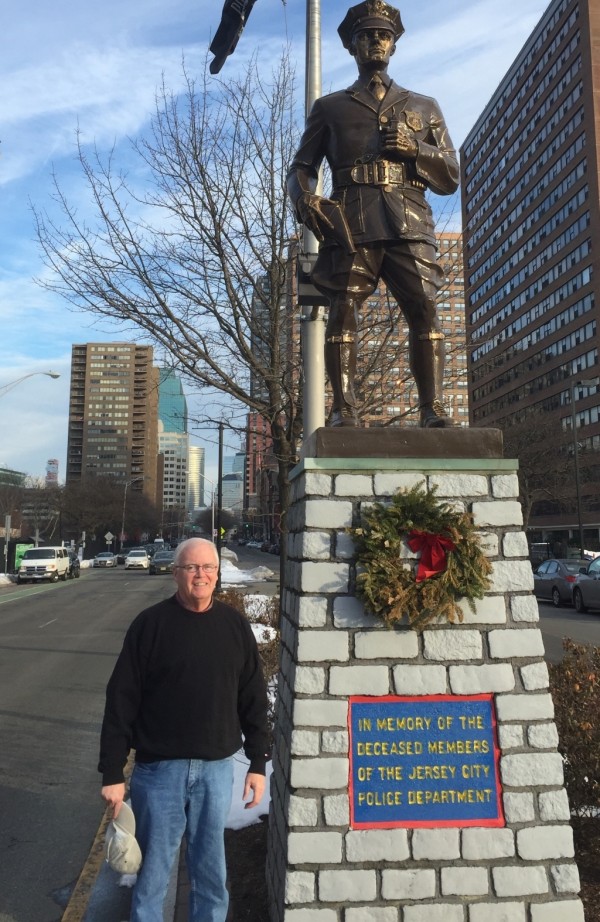
Larry Mullane’s stories about growing up and working in Jersey City – in the motorcycle and anti-robbery squads and later as a homicide detective for all of Hudson County – have become the stuff of legends for family and friends. His stories have also inspired screenwriters and novelists and led to a second career as a technical advisor for major television and film productions, such as Sea of Love and Clockers. I spoke to the hometown hero about his life and outlook on Jersey City’s colorful history.
Let’s see – I was born in Jersey City in 1948 and grew up in the Greenville section, and then, later on, the West Side and in the Heights. In the ‘50s and ‘60s, it was really a nice, working class neighborhood – the kind of town where you didn’t lock the doors. That changed in the 1970s, as drugs – here and across the country – led to crime. Growing up I didn’t see it as a “depressed” area, but by the time I came home from the Marines, that was definitely the perception.
I come from a family of Jersey City policemen – third generation. My grandfather became a cop here in 1915. He was a detective in what was called the Flying Squad in the Roaring ‘20s. His main job was looking for gangsters from New York to keep them out of Jersey City. My uncle, who raised me, became a Jersey City police officer in 1940 and worked in the city every day – save the three years he spent in the Army during WW2 – until he retired as a lieutenant in ‘75. He was my role model, the reason I became a cop.
I remember in the mid- ‘60s, when I was in high school, there were several officers who were promoted to detectives. They had their picture in the paper and were called “The New Breed” because they made such good arrests. I thought I’d love to be one of those guys. When I’m a cop, that’s what I aspire to be.
So you became a cop right around the time that Jersey City was starting to see more crime. In what units did you work and what were you doing?
When I first joined in ’71 there were fourteen of us in the academy, and all of us were put in the tactical squad. That was motor scooters. But they didn’t have enough scooters, so we were assigned to walking around the city, mainly in high crime areas. From there, I joined the motorcycle squad, which had been known as the M&M – mounted and motorcycle – but the mayor at the time decided the horses were too expensive.
In the late ‘70s, I was part of a brand new unit called anti-robbery. All big cities then were seeing a jump in crime because of drugs, including gun violence and homicides. In Jersey City, there were a lot of robberies. We were trying to develop a new way of doing things – catching robbers in the act. We looked at cities like Newark and Philadelphia and got invited to spend a few weeks with New York City’s street crime unit. We learned so much from them about how to catch bad guys. How to tell if someone walking by has a gun, for example. So we had the idea of forming a decoy anti-robbery squad. Everyone in the unit was a volunteer, we used our own cars, wore disguises and did stakeouts. It was a unique approach, mainly because we got an assistant prosecutor assigned to the squad. We received a $400,000 grant – a lot of money in those days – to run it. We made a lot of really good arrests, just by being in the street. And it was a lot of fun.
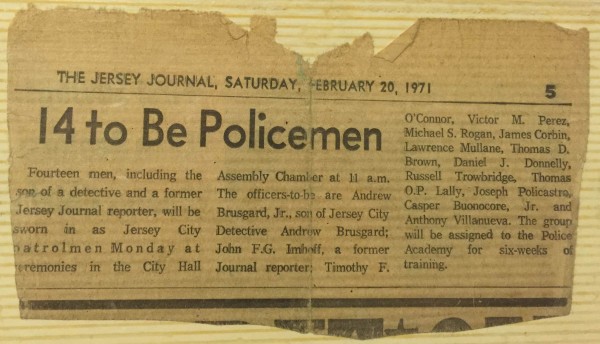
Can you share a story from that time?
There are some funny ones! One of my partners, Tommy Allen, and I covered what we called “the strip” on Kennedy Boulevard where there were a lot of store holdups. One night we set up surveillance in an empty storefront and we spot two guys walking up and down the street, clearly up to no good. We watch them for a good long while and when they finally go back to their car, we go over.
Back then, the computers were unreliable if you were dealing with people who, like these guys, weren’t from Jersey City, and they didn’t have any guns or masks or anything so we had to let them go. But we told them, “We’ve been watching you guys, and we know if we go back to the station and check you out we’ll find out you have records.” We give them the lecture and tell them we’re watching the whole city. There’s surveillance everywhere. “So if you’re planning to hold up a place, go to a nice little town like Nutley and try to pull this.” We go back to headquarters to run their histories and, sure enough, they’re holdup men.
A few hours later we’re back at work and we get called in by the captain. We walk in to find Nutley cops. These two went out to Nutley and held up a video store! They got caught because they were double parked and a cop was writing them a ticket! And what did they do but tell those cops, “The Jersey City cops sent us out here.” The captain looks at me and says, “I know you did not…” All I could do was say, “Yes, captain, yes we did.”
That’s quite a story! What is the wackiest thing you saw in the anti-robbery unit?
I don’t know if this is the wackiest but it’s always a great story. See, we got so popular in the anti-robbery squad for catching bad guys that when a precinct had a problem, they’d call us and ask for help.
One night we get a call about a prowler so we go meet the cops on duty and while they’re inside, we keep an eye out, just in case the burglar is hiding, waiting to make a break while the cops are investigating. The cops come out and tell us, “Never mind. It’s an animal complaint.” We get out of there. Not long after, same call. Then a third. We start to think there’s something to this so we head back over, but the cops tell us the lady making the calls is nuts. “Why?” we ask.
“She says there’s a lion out here.”
“What?! An African lion?”
“Yeah.”
We all go our separate ways again and what do you know? Another call. We decide we’re going to go talk to her. When we arrive, she is irate. “I told you there’s a lion and you don’t believe me! You think I’m crazy! Well, let me show you this!” And she’s pointing out a huge pile of, well, trust me, it didn’t come from a dog. She says she watched it walk right back across the street and into an apartment. So in disbelief we walk over, ring the bell and the janitor answers.
“You here about the lion?”
“What?!?! Yes!”
“Third floor.”
One of the cops goes up the fire escape to take a look and nearly fell when he saw this thing! Emergency services had to come and tranquilize the lion. Apparently the owner was a guy in the middle of a divorce. His wife took the house, he got the lion.
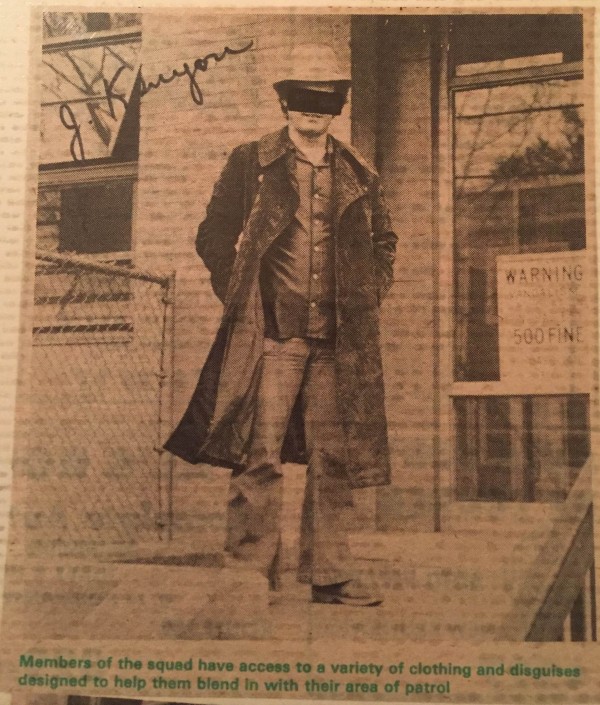
Whoa – that is…wild!
How did you get into investigating homicides?
I became a detective when the grant ran out. I was put back on motorcycles, as was my partner. We were offered detective not long after and agreed as long as we could stay partners. Later on, I was partnered up with another detective, Pat Sorrentino, and that’s when I got my first homicide case.
I learned a lot and we started working two precincts together – the Heights and Downtown. One night on a call, we arrived to find the Hudson County prosecutor on site, which was unusual. He was pretty angry because the first detective on the scene had made some mistakes. So we took it over and while we were working we got another call. We’re working two cases in just twelve hours or so, and although the prosecutor was happy with our work – and especially impressed by Pat with his thoroughness – he was annoyed at the whole situation. He told us he wanted to form his own homicide squad for the county. In Jersey City’s unit, like other cities, the rules prevented you from working overtime, so other cops would come in and take things over – or not if you didn’t have a lead. The prosecutor wanted 24-hour coverage. He asked us to be the first two guys in his unit. I started in the new unit in 1984 and we took over all homicides in the county.
Pat and I were split up in the squad so that the most experienced homicide detectives could be teamed up with detectives who came from other backgrounds, like narcotics, and who didn’t necessarily have homicide experience. In that first year, I think we had roughly 60 or 65 homicides and we cleared 82%. The following year, our clearance rate was higher than 90%. My partner then was a guy named Matty Mullane, funny enough – and over the years, defense attorneys would confuse us, which tended to help the prosecutor’s office. We had a lot of good guys working with us, and the unit is still going strong in Hudson County. I retired in 1998. Pat still works for the department as a civilian and often advises on difficult cases.
What made you guys so successful?
Good partners. Not just good cops – good people.
How many confessions did you get, ballpark?
Hundreds.
What’s the secret to getting a confession?
You have to become a friend. You have to earn their trust.
What is a technical advisor, and how did you end up working as one?
Basically, a technical advisor helps make a TV or movie scene more realistic. I got into it in ’86. My partner and I were having dinner and we ran into a friend of mine, Gene Canfield, another cop who was always doing small parts in movies. He’d been working with a writer who wanted to develop a movie about homicide cops. That wasn’t Gene’s expertise so he asked if I’d be willing to help out. A couple of weeks later he brings this writer in to talk and we hit it off. Later that day we got a call and he followed us to the scene. The next day, Gene said his friend loved us and asked if he could come out again. I was happy to have him. That writer was Richard Price. He wrote Sea of Love, Clockers, Freedomland and Samaritan – all of which were informed by Hudson County homicide and Jersey City. Clockers was adapted by Spike Lee, and I was hired as the technical advisor and he even gave me a small part in the movie. He’s really one of the nicest guys you’ll ever meet.
Through Richard, people started calling me to help write police stuff or things related to Hudson County. I think I’ve worked on fifty or sixty projects. Most don’t get made in the end. But it’s a lot of fun.
Do you have a favorite project?
I’d say Sea of Love, my first project. It was all so brand new to me. I got to see how movies are really made. It was amazing.
What do writers get wrong about police that drives you nuts? Richard asked me the same thing once. I hate when they have someone checking the safety on a .38 revolver – they don’t have a safety! Also, checking the gun to make sure it’s loaded. Nobody goes to work with an empty chamber.
If there’s ever a Larry Mullane movie, who do you want to play you?
Ha! I would love to have Ed Norton play me! It would be me telling stories just like this, and Harvey Keitel would play me now.
Harvey Keitel has become a friend, right?
I met Harvey as a technical advisor on Mortal Thoughts, which was filmed in Bayonne with Demi Moore, Bruce Willis, and Glenne Headly. I kept trying to talk to Harvey to tell him I thought they were playing a scene all wrong. But I couldn’t get him, or anyone really, to talk to me. I’m watching this scene where he’s screaming at a witness and thinking, this is absurd. This isn’t how cops interrogate. I actually got fired and rehired while I was trying to get someone to listen to me. When I finally got to talk to Harvey I noticed he was wearing a Marine Corps pin. We bonded over that and he asked how I thought he was doing. I said, “Terrible!” We changed his whole approach to that scene. That’s how we became friends. A couple of months later he called and said he was making another movie and asked me to look at some scenes and tell him how I’d play it. I told him, “Become these girls’ best friend” – that turned out to be Thelma and Louise.
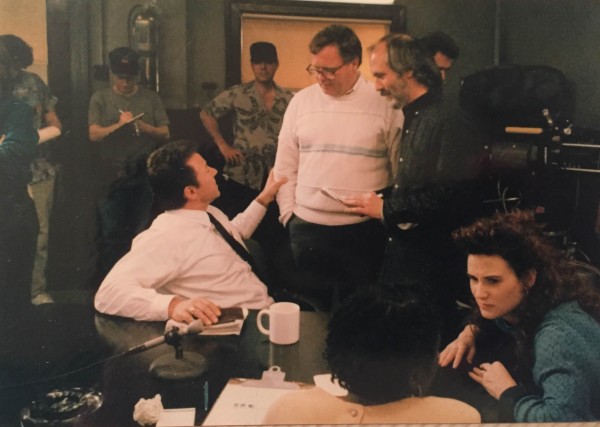
Back to Jersey City, you know a lot about the history and some of the best stories to come from this town. Got any that would make a good movie?
One of the best “movie-worthy” stories is about Joe “Newsboy” Moriarty, who ran a sports and numbers gambling empire all across Hudson County, with his headquarters in Jersey City where he lived with his sisters on Hamilton Place. Moriarty was never ostentatious and over the years he amassed a fortune valued in the millions. In the mid-‘60s, some electricians doing repair work in a garage on Oxford Ave. found two vintage cars and inside were suitcases filled with cash. After the electricians took what they could carry, and the police took a share, they turned over $4 million. The license plates were registered to Moriarty, who said he lost track of the cars years before and had no idea what became of them or whose money it was.
You’ve spent about five decades living and working here. What were some of your favorite places then, and now when you come back to visit?
Laico’s, Casino in the Park, Park Tavern. Great story about Park Tavern – the owners’ brother was a motorcycle cop in Ireland and when my wife, Evie, and I were on our honeymoon there we met him and the family put us up in a fantastic hotel. I still meet guys from the old crowd for lunch at Park Tavern when I’m in town. Best burger in the world.
But Jersey City is about people more than places. Growing up, my fondest memories were at friends’ homes. My closest friends’ parents were like a second family to me. That’s Jersey City.
And Evie is also from Jersey City?
Yes, I met Evie the day I passed the police test, in September 1970. I was appointed in February of ’71 and in June of that year we were married – 42 years now.
You’ve seen Jersey City transform many times over the years. What do you think about the city today?
I think it’s great that Jersey City has grown so much. It’s a fantastic town with fantastic people. Thirty or forty years ago, there was a lot of negativity here. But I remember a captain who would say, “How long do you think it’ll take for people to realize what’s here? Look across the river. How long till they realize how easy it is to go back and forth, what premier real estate this is.” He couldn’t foresee just how right he was, how big it would really be.
For more with Mullane: https://www.youtube.com/watch?v=HB9zFqHSnic
About the writer:
Olivia Goodman is a vice president at Finn Partners, a public relations agency headquartered in New York City. Olivia specializes in health communications. From medical breakthroughs and clinical research advances to preventive care, she works with many of the best-known names in the healthcare industry. A lover of characters everywhere, she’ll be writing about “old school” Jersey City stalwarts who helped shape the city we know and love today.

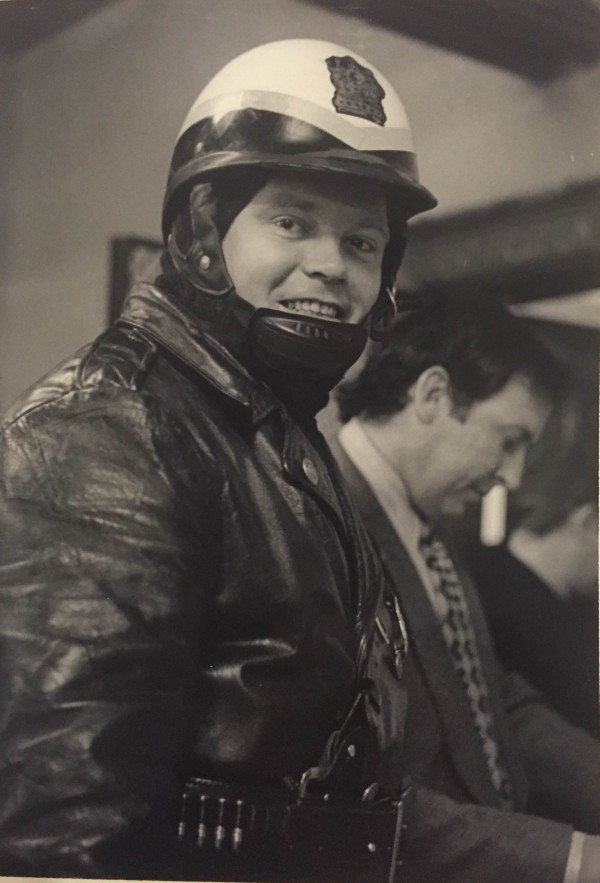
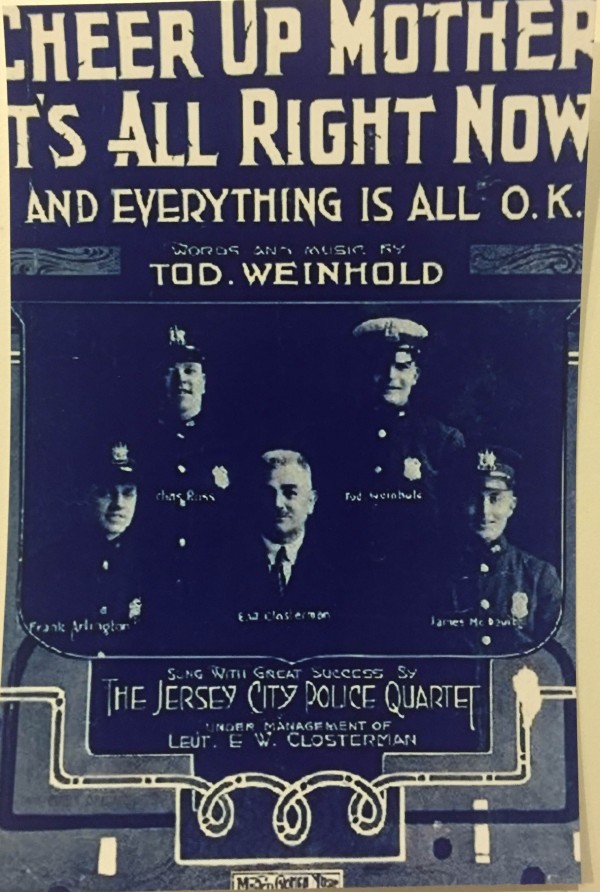
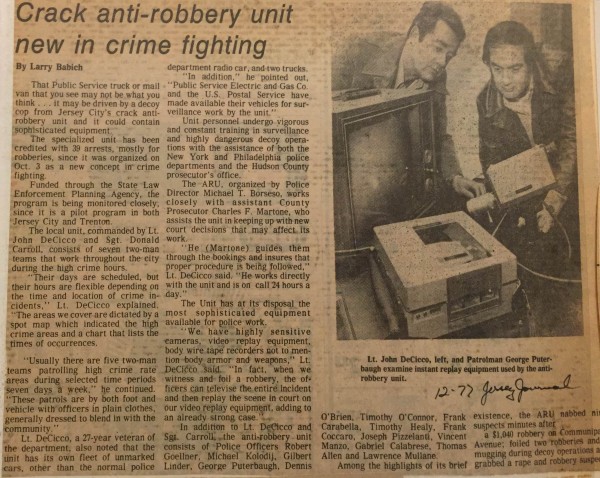
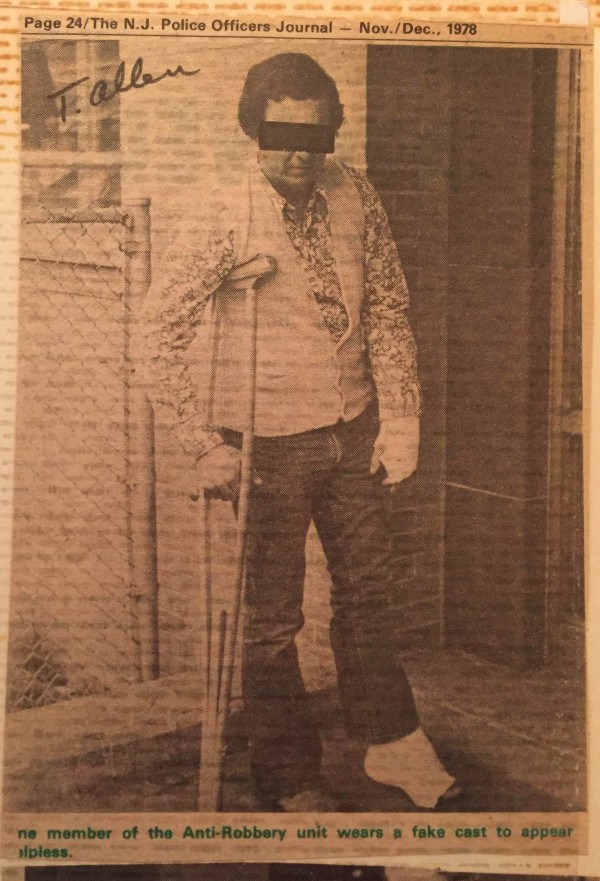
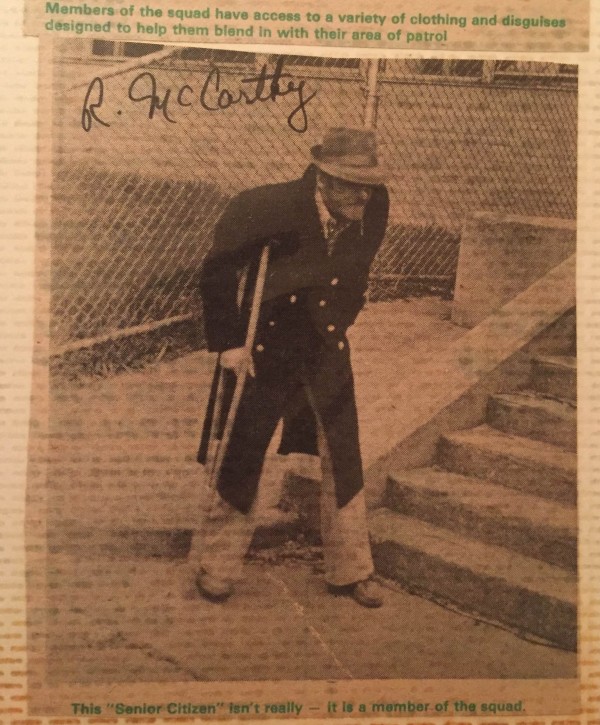
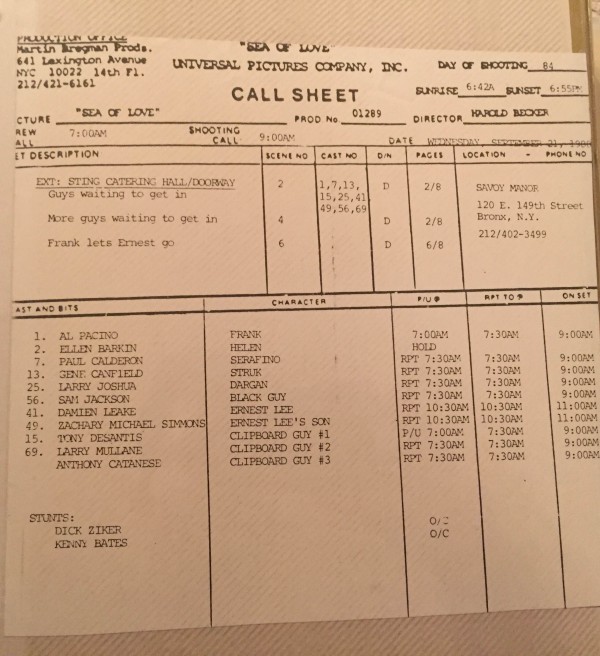
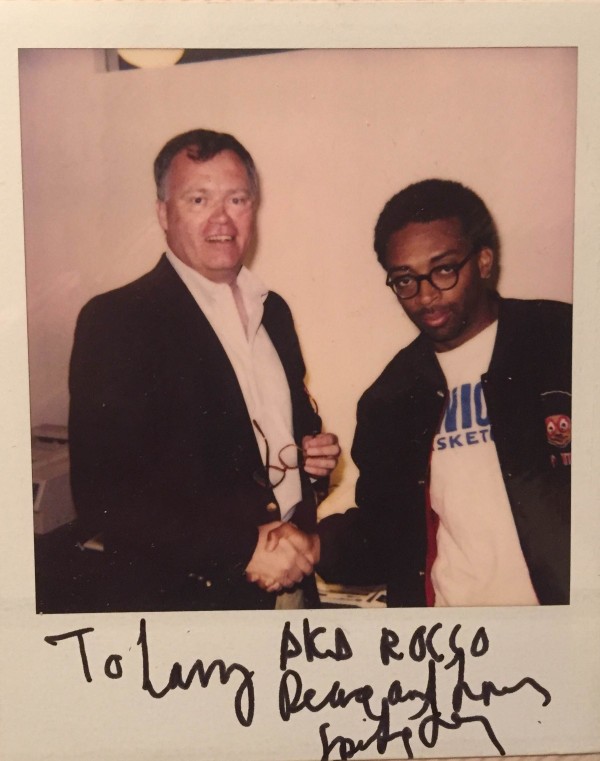
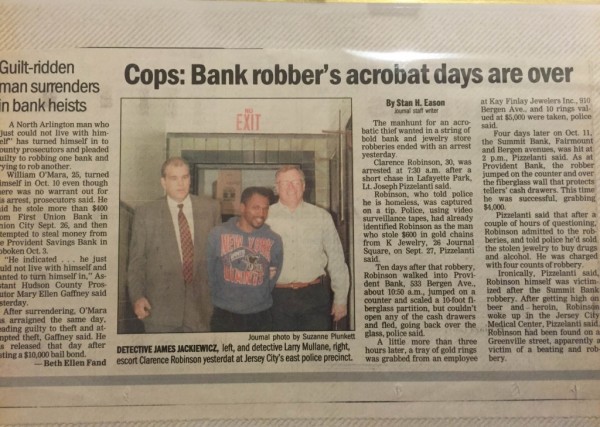
When I worked with the JCPD, the Cops always referred to an ambulance as a “Bus”. “We have a man down , bleeding bad, send us a “Bus” forthwith”. I had heard that Larry used that term while working as a Technical Advisor in a movie based in NYC. The NYPD picked up on the term “Bus”, and it has stuck with them all these years. I had the pleasure of working with Larry in the Miotorcycle Squad, SPB. A better Cop you’d be hard to find!👍🏻
That JCPD Captain he mentioned did not grow up in Jersey City but moved there in the 1970s and still lives there today